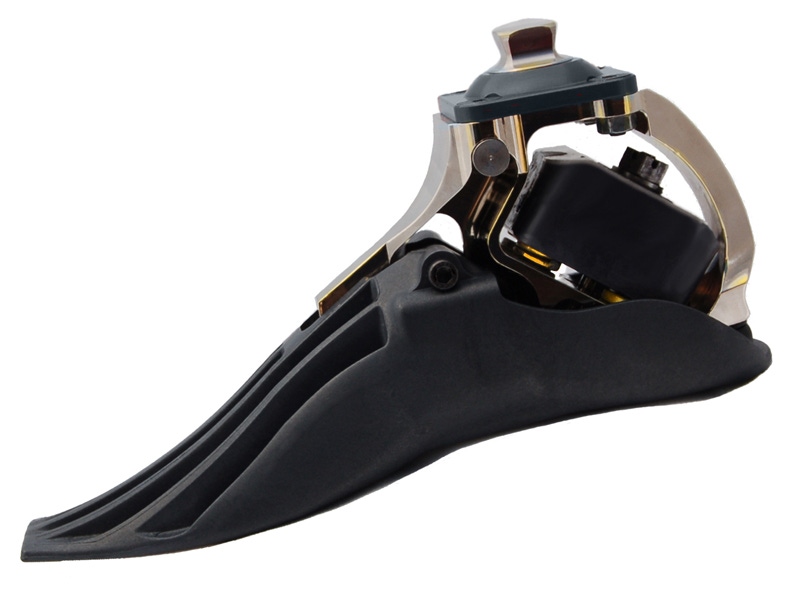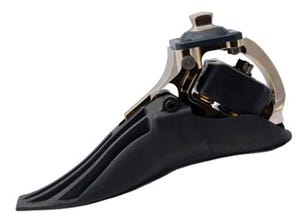A prosthetic foot developed and manufactured by Fitbionic Inc. (Boulder, CO) incorporates load-carrying bearings made of Torlon polyamide-imide (PAI) from Solvay Specialty Polymers (Brussels). The thermoplastic was chosen for this application because of its long-term strength and stiffness as well as its wear and fatigue resistance, according to Solvay.
March 13, 2014

A prosthetic foot developed and manufactured by Fitbionic Inc. (Boulder, CO) incorporates load-carrying bearings made of Torlon polyamide-imide (PAI) from Solvay Specialty Polymers (Brussels). The thermoplastic was chosen for this application because of its long-term strength and stiffness as well as its wear and fatigue resistance, according to Solvay.
Developed specifically for lower-activity and diabetic amputees, who comprise more than 80% of the U.S. amputee population, the Fitbionic device uses Active Stability technology to impart a feeling of steadiness to wearers and potentially prevent injuries. Effortless ground conformance and reduced pressure on the wearer's tissues combine with propulsive energy to deliver what the company calls the most humanlike walking foot commercially available
. The prosthetic foot assembly includes a nickel-plated aluminum axle that rides on and between two bearings made of Torlon PAI to provide multi-axial motion. The 0.75 x 0.5 x 0.5 in. bearings are machined from Torlon PAI plate stock. Solvay reports that Fitbionic potentially may switch to injection molding the bearings to handle larger production volumes.
The prosthetic foot assembly includes a nickel-plated aluminum axle that rides on and between two bearings made of Torlon PAI to provide multi-axial motion. The 0.75 x 0.5 x 0.5 in. bearings are machined from Torlon PAI plate stock. Solvay reports that Fitbionic potentially may switch to injection molding the bearings to handle larger production volumes.
In addition to strength and stiffness, Torlon PAI features wear, creep, and chemical resistance, and is suited for severe service environments. The material also yields a stable tribological interface by virtue of its strong mating and compatibility to a receptacle made of polyetheretherketone (PEEK).
Torlon PAI exhibits metal-like performance and is routinely specified for precision components used in repetitive-use, load-bearing operations, says Solvay. The material's wear resistance withstands the forces of walking that are projected on the bearing's 0.5-in.-wide surface without material loss or nonuniform wear.
About the Author(s)
You May Also Like


